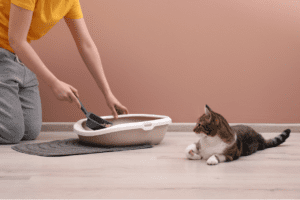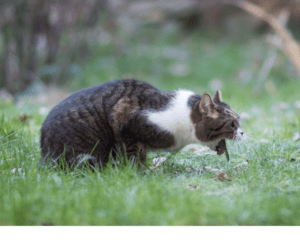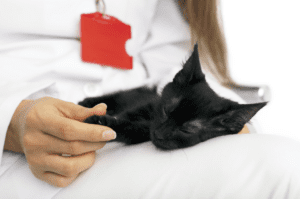5 Things That Can Help with Nose Discharge
 Nose discharge is one of the first signs that develop in dogs with Distemper. Since it usually leads to airway blockage, it can make it difficult for dogs to breathe normally. So as a dog owner, if you see mucus dripping down your sick pup’s nose or notice them having trouble breathing, it’s important to know what to do.
Nose discharge is one of the first signs that develop in dogs with Distemper. Since it usually leads to airway blockage, it can make it difficult for dogs to breathe normally. So as a dog owner, if you see mucus dripping down your sick pup’s nose or notice them having trouble breathing, it’s important to know what to do.
Of course, the first and best thing you should do is head straight to the animal hospital, but you’ll also need to make some changes at home once your furry friend gets discharged. These are slight adjustments to your daily routine, but it’ll help your dog feel more comfortable throughout the recovery period:
Keep the Household Clean and Dust-Free
 Since your dog has Distemper, their immune system will be weaker than normal. That means they won’t be able to fend off harmful microorganisms or respond properly to allergens, like dust and other airborne irritants. To make sure that your dog’s nose discharge and breathing trouble doesn’t get worse, try to keep the household, especially your sick pup’s quarantine room, as clean and dust-free as possible.
Since your dog has Distemper, their immune system will be weaker than normal. That means they won’t be able to fend off harmful microorganisms or respond properly to allergens, like dust and other airborne irritants. To make sure that your dog’s nose discharge and breathing trouble doesn’t get worse, try to keep the household, especially your sick pup’s quarantine room, as clean and dust-free as possible.
One of the most effective ways to keep indoor irritants at bay is through vacuuming since it doesn’t cause dust particles to scatter. It’s recommended that dog owners vacuum every day, especially in multi-pet households, but three times a week works, too. If you start noticing dirt or dust forming in certain areas around your home or your dog’s quarantine area, take it as a sign that it’s time to whip out the cleaning supplies.
Use a Humidifier
 Aside from a clean recovery space, a humidifier can also help alleviate your dog’s discomfort. By purifying and moistening the air, it can help unclog your furry friend’s nasal passages and make it easier for them to breathe. You can view some of the most top-rated ones here.
Aside from a clean recovery space, a humidifier can also help alleviate your dog’s discomfort. By purifying and moistening the air, it can help unclog your furry friend’s nasal passages and make it easier for them to breathe. You can view some of the most top-rated ones here.
However, make sure to use the cool-mist variety, since it’s safer for pets. Place it inside your dog’s quarantine room and let it run as long as you need it to, but make sure to take it out for cleaning every three to seven days.
Regularly Wipe Your Dog’s Nose Clean
 Since your dog is under quarantine for the time being, we know that you’ll be checking in on them several times a day. As you do so, bring a small tub of warm water and a clean, soft towel.
Since your dog is under quarantine for the time being, we know that you’ll be checking in on them several times a day. As you do so, bring a small tub of warm water and a clean, soft towel.
Dip the towel into the tub of warm water and use it to gently wipe away any hardened nose discharge, as well as eye discharge, which is also common for dogs with Distemper. This will prevent nasal secretions from accumulating around the nose area and blocking your sick pup’s airway even more.
Offer Plenty of Fluids
 Just like humans, dogs with runny noses also need to drink lots of water or electrolyte solutions. This is because they, too, lose plenty of fluids when they’re sick.
Just like humans, dogs with runny noses also need to drink lots of water or electrolyte solutions. This is because they, too, lose plenty of fluids when they’re sick.
One of the best electrolyte drinks for pets has to be unflavored Pedialyte. It’s safer than other electrolyte supplements on the market for pets and it works. If you need to get one for your pet or want to check out other great options, click here.
However, that’s not all. Water also helps loosen mucus and relieve nasal congestion. So, as your dog battles against Distemper, make sure to provide them with enough clean, fresh water every day. If your dog refuses to drink on their own, you may need to talk to your veterinarian about fluid therapy, which is a procedure where dogs are given fluids intravenously. You can read more about it here.
Talk to Your Veterinarian About Nasal Decongestants
 If your dog’s nose discharge isn’t clearing up or seems to be getting worse, it’s best that you approach your veterinarian and ask about nasal decongestants. Nasal decongestants are medications that help relieve nasal congestion by reducing mucus production and any swelling in the respiratory tract.
If your dog’s nose discharge isn’t clearing up or seems to be getting worse, it’s best that you approach your veterinarian and ask about nasal decongestants. Nasal decongestants are medications that help relieve nasal congestion by reducing mucus production and any swelling in the respiratory tract.
If your dog is already taking other medications, your veterinarian may need to go over your pup’s current treatment plan and make adjustments to prevent the drugs from interacting with one another.






